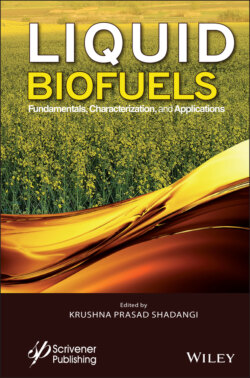Читать книгу Liquid Biofuels - Группа авторов - Страница 51
2.7 Future Prospects and Challenges
ОглавлениеBiodiesel via transesterification is one of the emerging processes for meeting the increased demand for renewable fuels. Transesterification, being a heterogeneous reaction system, is a mass-transfer controlled process. Moreover, the selection of feedstock controls the economics of the overall process. In order to improve the overall economy of the process, the feedstock of non-edible oils and heterogeneous catalysts are the best feasible solutions. The use of heterogeneous catalysts further increases the mass transfer barriers and lowers the conversion rate. To improve the reaction kinetics and yield of the process, sonication is found to be a useful tool in lab-scale studies. Research on ultrasound-assisted or cavitation-assisted biodiesel processes is promising and demands further R&D efforts to develop large-scale operations. Significant research is also required on ultrasound-assisted heterogeneously catalyzed transesterification processes. Large-scale biodiesel production may require the use of a mixture of non-edible oils and third-generation feedstocks like microalgal lipids. Efficient processes need to be developed to convert these feedstocks into biodiesel in a cost-effective way that requires R&D in both chemistry and reactor design and engineering. Lab-scale research in academic institutions and universities and the pilot-scale trials in the industry should go hand-in-hand to develop an energy-efficient, sustainable, and economically attractive commercial biodiesel process.
